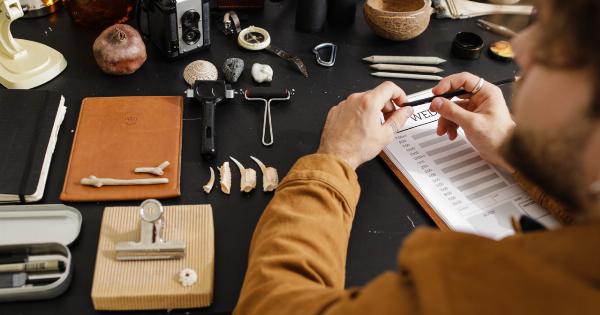Every woman has an image of herself in her mind – an image that is shaped by the world around her. From the time they are born, girls are bombarded with messages about what they should be like, how they should act, and what they should look like.
These messages come from parents, friends, media, and society as a whole. Unfortunately, many of these messages are based on stereotypes that are not only inaccurate but also harmful. They can negatively impact a woman’s self-esteem, confidence, and overall sense of worth.
What Are They?: Gender Stereotypes
The world is full of stereotypes – preconceived notions or ideas about groups of people that are communicated through language, beliefs, and attitudes.
Gender stereotypes are specifically focused on the characteristics, attributes, and roles associated with males and females. They are based on cultural assumptions, historical contexts, and social norms. Gender stereotypes are everywhere – in movies, magazines, television shows, advertisements, and even children’s books.
They are reinforced through the media, educational institutions, and family members. For instance, girls are often portrayed as emotional, weak, and passive, while boys are seen as strong, athletic, and aggressive.
The Impact of Gender Stereotypes on Women
The impact of gender stereotypes on women is far-reaching. These stereotypes can influence a woman’s choice of career, educational path, relationships, and even her physical appearance. They can make women feel unworthy, inadequate, and insecure.
On a larger scale, gender stereotypes can lead to gender inequality, discrimination, and violence.
Self-Perception and Gender Stereotypes
Although gender stereotypes affect women’s lives in numerous ways, one way that they have a significant impact is on how women perceive themselves. Women are not immune to the messages of gender stereotyping, and they often internalize them.
When women are constantly exposed to stereotypical messages, they begin to believe them. As a result, their self-perception becomes shaped by these stereotypes. For example, if a woman is repeatedly told that she is not good at math, she may begin to believe that she is not good at math.
This belief can impact her academic choices and future career.
Gender stereotypes can also make women feel inadequate in other areas of their lives. For instance, women who do not fit the “ideal” body type portrayed in the media may feel self-conscious about their appearance.
Women who are assertive, ambitious, and outspoken may be labeled as “bossy” or “difficult.” Negative stereotypes can also affect women’s mental health by leading to feelings of depression, anxiety, and an overall sense of dissatisfaction with their lives.
Breaking Free from Gender Stereotypes
It is important for women to be aware of the negative impact that gender stereotypes can have on their self-perception. By recognizing and challenging these stereotypes, women can begin to break free from the limitations that they create.
One way women can do this is by seeking out positive role models who defy traditional gender expectations. This can include female leaders, successful businesswomen, and women who have achieved non-traditional careers or hobbies. Women can also combat negative stereotypes by challenging them when they appear in conversations or media.
Finally, it is important for women to acknowledge and celebrate their unique abilities, strengths, and achievements. By doing so, they can build self-confidence and develop a healthy self-image.
Conclusion
Gender stereotypes have a powerful impact on women’s self-perception. They can limit women’s potential and create negative self-beliefs.
By recognizing and challenging these stereotypes, women can break free from their influence and develop a more positive self-perception. With time, dedication, and support, women can become role models for themselves and others, challenging stereotypes and changing the world.





























